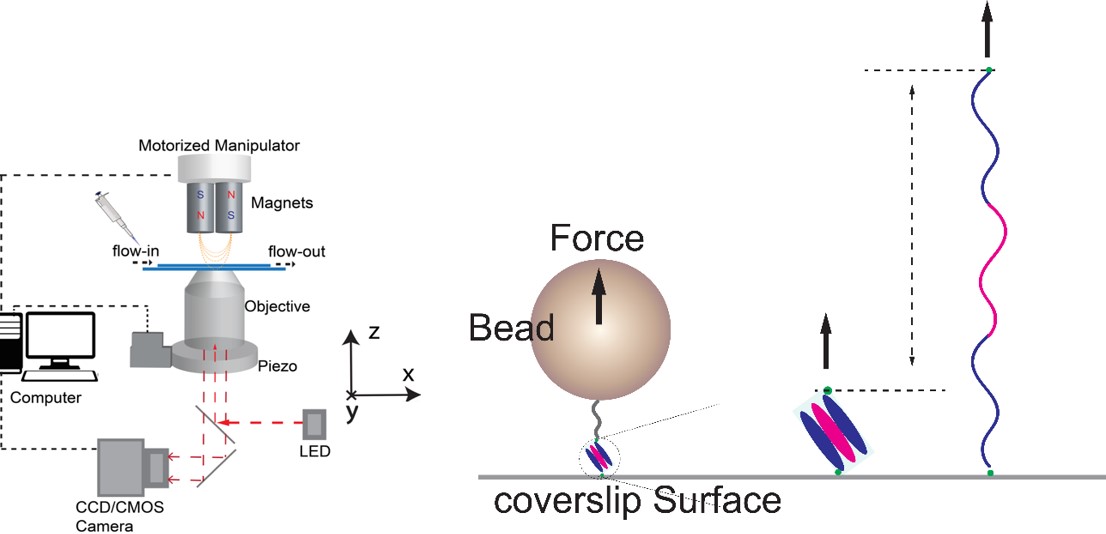力学生物学 (Mechanobiology) 是生物、物理、医学、工程等多学科交叉发展的新兴前沿研究方向。
近年研究表明细胞黏附、迁移与分化,组织生长、修复与维持,胚胎发育,肿瘤生长与转移,免疫激活等一系列重要的生理、病理过程都受到力信号的调控。力学生物学研究旨在研究力信号对生命体在分子、亚细胞、细胞、组织、器官等层次行为的调控机制,及在机制理解与指导下的生物医学应用。其基础是一系列力敏感的生物大分子的力学响应与调控。
课题组以探究生命医学重要问题为目标,聚焦“生物大分子动态与互作的力学调控机制”及其潜在生物医学应用,注重物理与生物、医学交叉,致力于通过单分子、单细胞力学操控与成像等技术,揭示关键生理、病理过程中的蛋白互作调控、核酸—蛋白互作调控在生理范围力作用下的分子机制。
Mechanobiology is an emerging interdisciplinary research field at the forefront of biology, physics, medicine, engineering, and other disciplines. Recent studies have shown that a series of significant physiological and pathological processes, such as cell adhesion, migration, and differentiation, tissue growth, repair and maintenance, embryonic development, tumor growth and metastasis, immune activation, are intrinsically governed by mechanical cues. The focus of mechanobiology research is to investigate the regulatory mechanisms of mechanical signals on behaviors at the molecular, subcellular, cellular, tissue, and organ levels of living organisms, and to apply this mechanistic understanding to biomedical applications. This research is rooted in the mechanical responses and regulation of a range of mechanosensitive biomolecules.
With the aim of exploring vital issues in biomedical science, our research group centers on the 'Mechanical Regulation Mechanisms of Biomolecules’ Dynamics and Interactions' and their potential biomedical applications. We emphasize the crossroads of physics, biology, and medicine, and are dedicated to unraveling protein-protein interactions and nucleic acid-protein interactions under physiological forces in key physiological and pathological processes using cutting-edge techniques such as single-molecule manipulation and imaging at the single-cell level.
